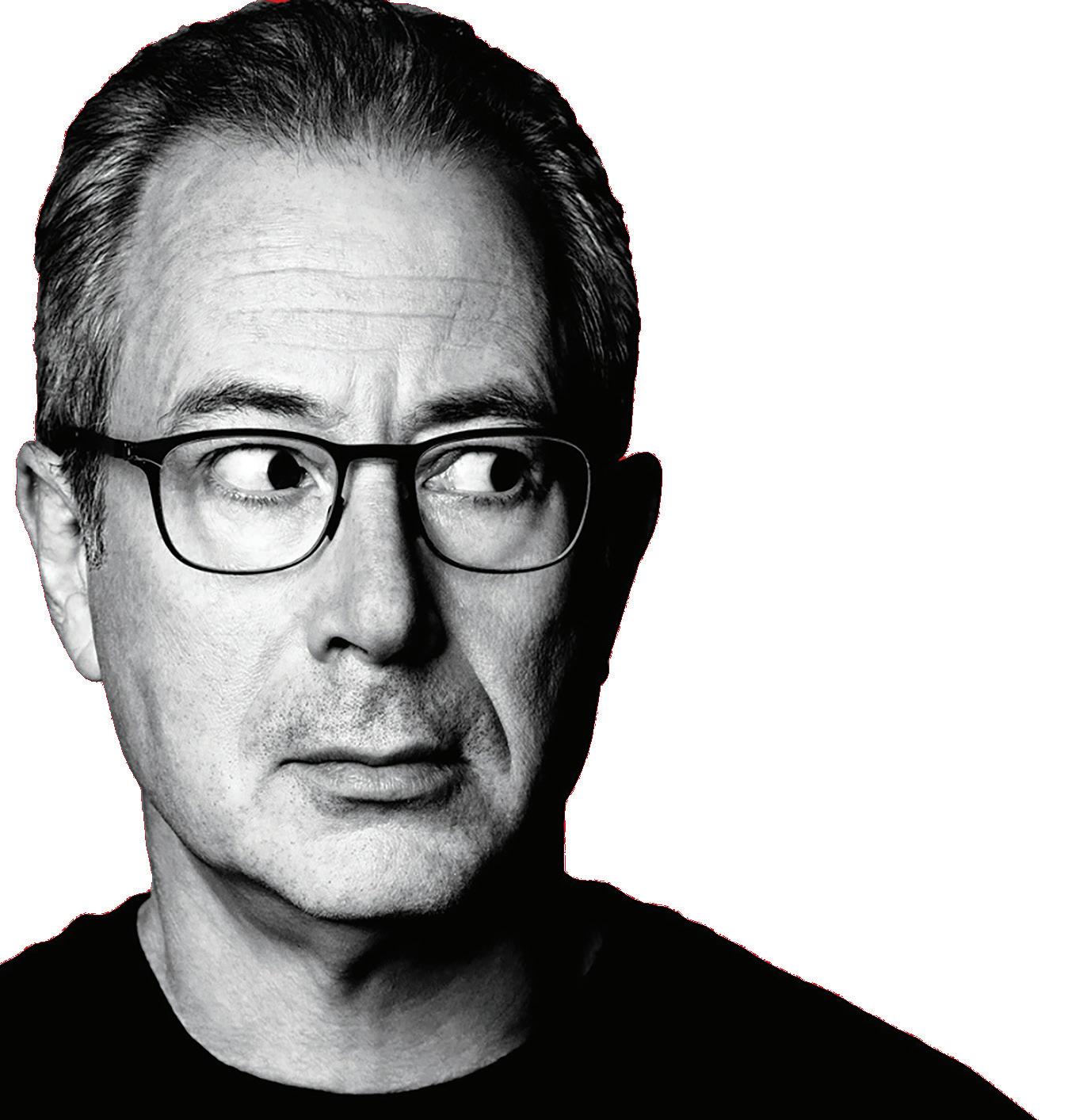
13 minute read
MATT KEEGAN
Ben Elton is the Cliff Richard of comedy. At least when talking about long term success. The man has seen a hit sitcom on the BBC every decade since the 1980s, from punk comedy favourite The Young Ones which Elton co-wrote when only in his 20s, through to the beloved Blackadder and all the way up to the current David Mitchell sporting Upstart Crow. He’s worked with comedic greats like Adrian Edmondson, Rowan Atkinson, and the dearly departed Rik Mayall to name but a mere few. He’s worked with music greats such as Queen on the We Will Rock You musical. And he’s worked with the great publishing houses with myriad novels including Stark, Popcorn and Dead Famous. And now, at long, long last (especially considering this was meant to happen last year thankyouverymuchCovid) the man is returning to the stand-up stage for the first time in 15 years. Ahhhh, the call of stand-up. Just when I thought I was out, they pull me back in, eh Ben? “I never wished to, nor tried to, escape stand-up comedy,” Elton chuckles. “I just took a pause, only because I wanted to be a part of my kids’ growing up and, if you tour as I do, you take a few months, go to Australia and New Zealand, maybe a bit of Canada, drop into Hong Kong… It takes a lot of time! And I don’t have to do it, so I don’t want to miss six months where my kids go from five to six or six to seven; those are beautiful times, although they’re hard work, to be honest. But I’ve had my time taking the piss out of that.” One of the reasons Elton has never wished to escape stand-up lies in its many allures, which have been with him since a young age. “I loved stand-up comedy as a 21-year-old when I realised it was a vibrant vehicle for ideas,” he chimes. “For me, stand-up comedy is an intriguing and challenging comic art. It’s the most subjective thing I do. When I’m on stage, I’m really presenting my SELF. Elsewhere, I can hide my opinions behind characters, or any number of things! “But on stage, it truly is the sharp end, and on the sharp end is me; this is how I feel, this is what makes me passionate, this is what makes me angry. This is me seeing the funny side of this shit we’re all going through. And that’s a very personal and edgy thing to do. If you slip, you’re doing it in front of a lot of people; if you’re misunderstood, especially in the age of Twitter and outrage, it can have some very serious consequences. But it all makes for a very focused evening, and makes for more exciting art.” The comment about Twitter and The Age of Outrage lent me to query whether this has changed Elton’s approach to comedy, either through context or content.
“I talk a lot about it,” he says. “It hasn’t changed me; I do my thing, I tell my truth, and I tell it with as much passion and vigour and creativity as I can. “But I do talk about context, and not quoting me out of context,” he continues. “And it’s funny - I hope I’m making it funny - but I talk about what could be done to me, and I’ll pick up a sentence from a nuanced conversation about trans rights or Me-Too, and you take that one sentence and I’m dead; you’ve killed me. So I’m saying don’t do it. And if anyone does do it, I need everyone else to tweet back in my defense! My wife was worried about it because she said you’ll be labelled toxic, and closed down; become a non-person. “Frankly, I’m 60, I’ve written a lot of novels and done a lot of tours; I think I can take the risk.
Advertisement
“The audience knows what’s happening underneath and are enjoying it,” he continues. “The banality of taking offense without thinking, without applying nuance or context, is a very dangerous thing that’s happening at the moment. Suddenly everyone’s having toxic debates and it’s alienating us all. It’s making us feel all separate and defensive. But my tour is bringing everyone together! You can see what I’ve done to Britain. When I started, Britain was hopelessly divided; but look at us now!” Fellow Brit comic Jimmy Carr, who I have interviewed on a few occasions, also shares this sensibility. Elton is quick to highlight the differences between he and Carr’s approaches. “Jimmy has a very different situation; what he’s saying is look, it’s all out there and I’m finding the funny, I don’t care if you take offense or, at least, I wish you wouldn’t. I’m a bit different. I like Jimmy; a lot of what he does is very, very funny. But his whole point is, ‘I don’t have a position’. I don’t have an attitude here; I’m just telling jokes. “I don’t do that,” Elton asserts. “I don’t tell ‘jokes’. I’m saying the exact opposite of what Jimmy’s says. This IS me, I do have an attitude, I do have a position. I am applying my point of view and adding a moral imperative to the act. You don’t have to agree with it, but by fuck am I going to make it funny and I’m gonna make you understand it, and if you quote it out of context I’ll pursue you til the day I die. “Jimmy’s a gag-teller; I am giving my truth. I’m coming at various issues with my point of view, and that’s kinda dangerous. You can’t say what Jimmy says, which is, ‘Hey! I was just having a laugh’. Mine are laughs within the idea I’m developing.” With this - and without risking the banal ‘do you still get nervous?’ question performers receive ad nauseum - Elton goes on to say: “I don’t get gut butterflies; it’s more a tension I get before going onstage because I have to remake my comic argument every time. Over two hours, I have to make my point. And I stress about that. People don’t need to agree, but I hope I intrigue. Some people say, ‘I don’t vote the way you do, but you made me laugh and you made me think.’ And I think, ‘Ooo, that’s nice.’” Fully down the comedy rabbit hole, this leads Elton is expand further, delving into the theoretical and, perhaps, the philosophical. “My life and my career is an instinct,” he says. “I write what I think. It’s not an option for me to just write gags. Art is an improvisation. When I write a joke, I’m hearing it for the first time. None of us know how we think. It’s like that Ian Foster quote: ‘How do I know what I think til I see what I say?’ Like painting a picture; you don’t know what it’s going to be when you first dab colour onto the canvasse. Sure, you have an idea, but you don’t know what’s formed until it’s formed. “Mind you,” he adds, after brief reflection, “there’s an Abraham Lincoln quote: ‘If you give me two hours to cut down a tree, I’ll spend the first hour sharpening the axe’. That’s also worth thinking about! So maybe have a bit of a plan.” It’s clear Elton pours heart and soul into his comedy, and after so many years in the game operating through so many different mediums, he has a lot to say, with his entire career to this moment leading up to his show at The Playhouse. “I’m looking forward to Canberra,” he chimes. “I’ve had very nice meals there. Very classy. I’m looking forward to getting a walk on, in the country. I like Canberra, but I also like getting out in the countryside. I went on a little horse-riding holiday thing. It was great fun.” Ben Elton will be at The Playhouse on Tuesday, 20 April at 7:30pm. Tickets are $71.65 - $183.65 + bf (and mostly sold, so hurry!) from canberratheatre.com.au
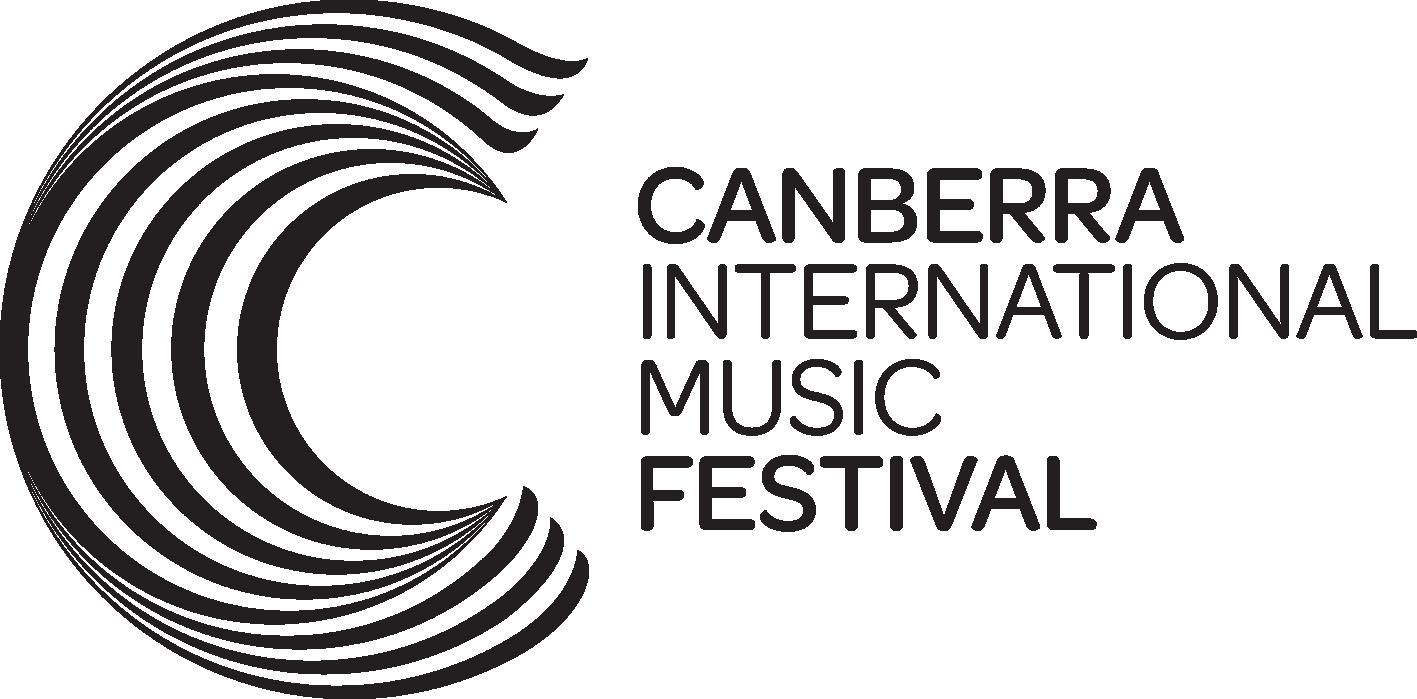
Inclusion, Connection and Relevance … the Idea of Vienna
BY ANTHONY PLEVEY
The 26-year history of the Canberra International Music Festival may have its roots in classical and chamber music, but acclaimed pianist and versatile musical director Roland Peelman has been working over his six-year tenure as Festival Artistic Director to shift the festival to a broader focus.
Following the hiatus enforced by COVID-19 last year, 2021 is something of a breakthrough year for the Festival as the organisation activates its key values of inclusion, connection and relevance in an expansive program that engages with a wider variety of musical forms, reaching out to new audiences. Seeing the Festival theme “…the Idea of Vienna” as a pivot point, Peelman explains: “To some people, Vienna means coffee, chocolate and schnitzel. For music-minded people they think, ‘Oh yeah, that’s Mozart, isn’t it? Hayden, Beethoven, Schubert and all those guys’. “For a lot of people it stands for the tradition, the western tradition. So we have this “…idea of Vienna” and a perception of it. “But we live here in Australia,” Peelman continues. “We have a culture that goes back over 40,000 years, so I thought we should actually turn the table; let’s look at Vienna from the other side.” Peelman is enthusiastic about “upping the ante on Indigenous music” and the expanded Canberra International Music Festival running from 17 April to 9 May, whilst presenting a core of classical works by Beethoven, Schubert and Mozart, has over a quarter of its program incorporating Indigenous performers, works, and themes. To whit, major works include Brenda Gifford’s 2020 composition Djiribawal presented as part of the festival’s Opening Gala at The Fitters Workshop. There’s a presentation of festival composerin-residence Brian Howard’s dreamtime themed Rainbow Serpent at the National Gallery of Australia with songs by Jo Geia and traditional songs from the Tiwi Strong Women. And there’s festival commissioned Indigenous music Hand to Earth by Yuin Woman Brenda Gifford at the National Gallery of Australia. Performances by Indigenous artists include Magic Garden at the Australian National Botanic Gardens featuring southeast Arnhem Land Songmen David and Daniel Wilfred. Eyes and Ears at the National Film and Sound Archive, with live performance by the Tiwi Strong Women linking traditional song with archival footage. And two events, All of them, and one of us and Heartland will feature composer and acclaimed Didgeridoo player William Barton. Festival Open Day, CIMF@Belco Arts, will include further performances by the Tiwi Strong Women. Rapper, drummer, and Murrawarri Republic member Dobby is performing with DJ Diola as part of Sessions@Verity, and Traditional songs by David and Daniel Wilfred, Wagilak-speaking Songmen from southeast Arnhem Land, will feature as part of Great Hall Rising at The Fitters Workshop. The Canberra International Music Festival’s expanded program also offers more for fans of Jazz and Contemporary music with a new alliance between the Festival and Verity Lane Market in the city’s CBD offering an accessible, less formal environment. Among the featured artists in the Sessions@Verity series are aforementioned rapper Dobby and DJ Diola, Canberra’s own classical guitar duo Andrew Blanch and Ariel Nurhadi, while Christine Johnston and Sonya Lifschitz will present Crumb’s Lyre preceded by Localjinni’s Alleyhart video walk. Sessions@Verity will also include the festival’s youngest performer Ronan Apcar on piano presenting Third Stream, and the highly regarded jazz combo The Sandy Evans Trio. Also included are free lunchtime concerts by Anna Fraser and Calvin Abdiel. The free open day CIMF@Belco Arts at the new Belconnen Arts building is worth further mention. Featuring a smorgasbord of musical experiences, CIMF@Belco Arts presents a broad range of festival artists from the Indigenous songs of the Tiwi Strong Women to the guitar riffs of Jess Green and the hip-hop grooves of DJ Diola.
Asked about the standout works of the Festival, Peelman, pianist and fan of the genre-bending, unclassifiable Radiohead, identified the highpoint of the Sessions@Verity series as Josh Cohen’s Radiohead for Solo Piano, a sanctioned piano interpretation of their songbook by the band themselves. “I’m really excited about it. I’ve always loved Radiohead and it works so well on piano,” says Peelman. Peelman highlights new work Djiribawal (2020) by Yuin woman and emerging composer Brenda Gifford as a highlight of the Festival’s Opening Gala.
Tiwi Strong Women

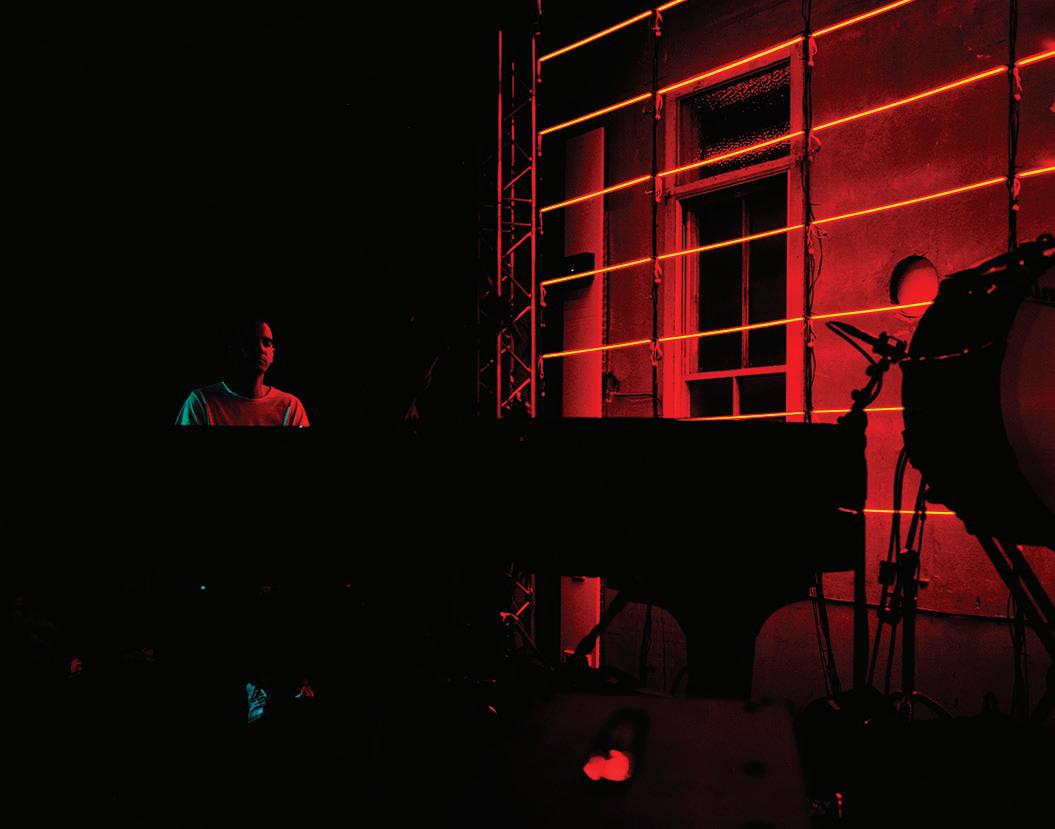
“We are celebrating her [Gifford]. We’re celebrating that new work which is a different way of looking at the world,” says Peelman, reinforcing his take on the Festival’s theme. Freshly commissioned by Canberra International Music Festival, Indigenous work Hand to Earth composed by Yuwaalaraay storyteller Nardi Simpson also gets praise from Peelman. “It’s absolutely remarkable,” he says. “Because it’s about ancient women’s culture that was lost about 100 years ago. So it’s about reviving the old traditions that died out.” Uniquely, Nardi and her sisters, Six Yuwaalaraay Women from Lightning Ridge, will perform Hand to Earth using a possum skin cloak, newly created by the artists, as an instrument. The festival program also highlights female performers drawing on the strength and stewardship of Indigenous women as much as the refined skills of classical instrumentalists and soloists and the audacity of Christine Johnston and Sonya Lifschitz’s collaboration. Discussing Katy Abbott’s innovative Hidden Thoughts: Do I Matter?, an engaging and challenging work at anytime, Peelman acknowledges the absolute synchronicity and relevance of this work in the context of current events.
A cross discipline collaboration between composer Abbott and writer/cartoonist Kaz Cooke, and linked with University of Houston researcher Brené Brown’s work on vulnerability and shame, Hidden Thoughts: Do I Matter? is based on the anonymous responses of over 200 women to four questions: Do you have hidden thoughts and feelings? What have you learned to be brave about? What would you like to be braver about? Would you like to say anything more about hidden thoughts and/or courage? In her artist’s statement, Composer Abbott characterises Hidden Thoughts: Do I Matter? as: “A journey into that murky place, the chatter in your head …asking you to consider the thoughts that confine you and to become their witness rather than their slave.”
Sandy Evans Ronan Apcar
Focussing on the themes of personal disclosure, self-censorship and role expectations, Hidden Thoughts: Do I Matter? takes a verbatim theatre approach designed to incorporate the audience’s thoughts in real time. Based on a vocal style of writing and composing, developed by Abbott for using words that aren’t designed to be set to music, this timely work is anticipated to be a highly evocative and emotional feature of the festival program. Festival Artistic Director Peelman’s picks of festival highlights clearly point to the 2021 Canberra International Music Festival’s expanded scope and diversity in pursuing musical excellence, maintaining its core traditions whilst being courageously determined to look at the world in a different way, flipping …the idea of Vienna. Noting again the impact of COVID 19 on the planning and development of the Festival program, Peelman emphasised that most events repeat across the festival program to ensure audience access. The Canberra International Music Festival runs from 17 April 17 to 9 May across various venues. Full program details are available at cimf.org.au
Dobby


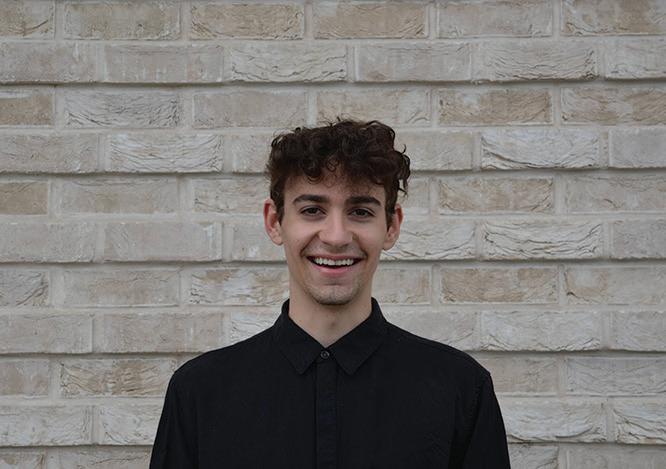

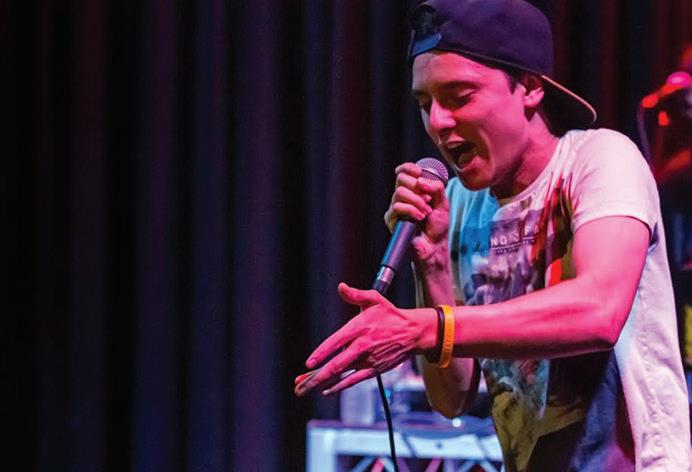
Matt Keegan - Vienna Dreaming
Christine Johnston










